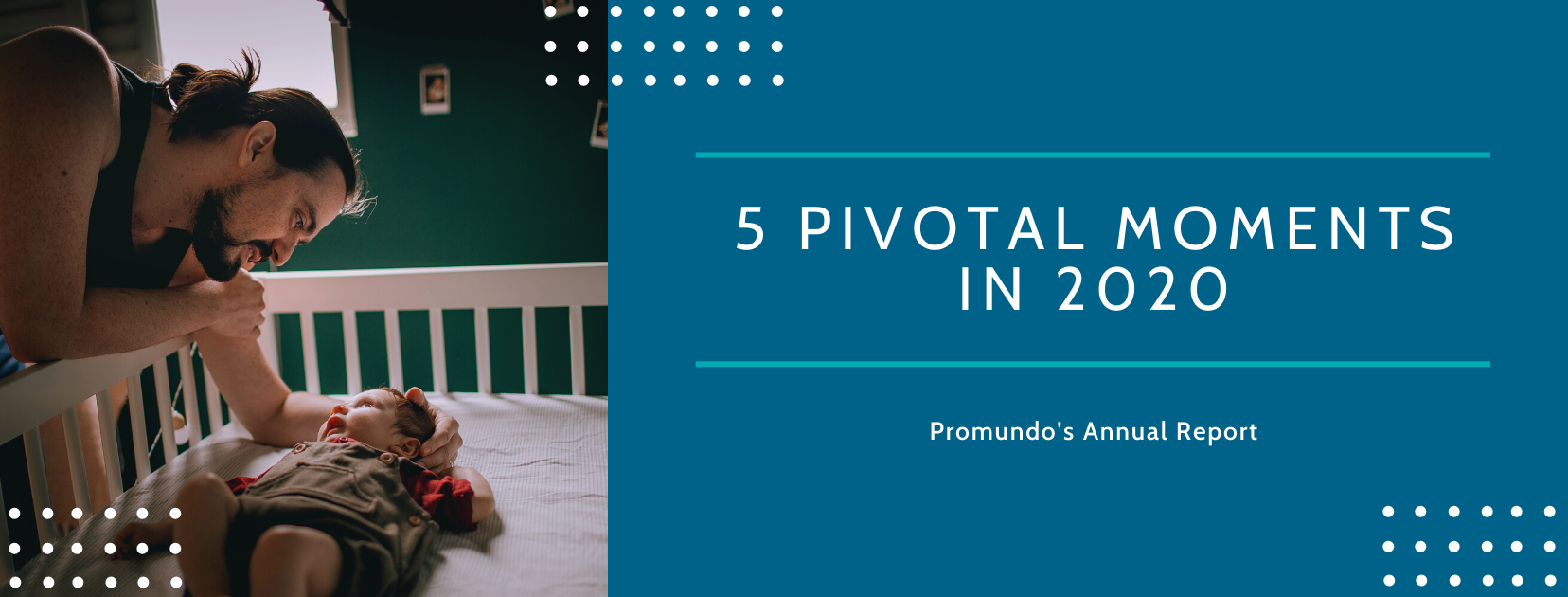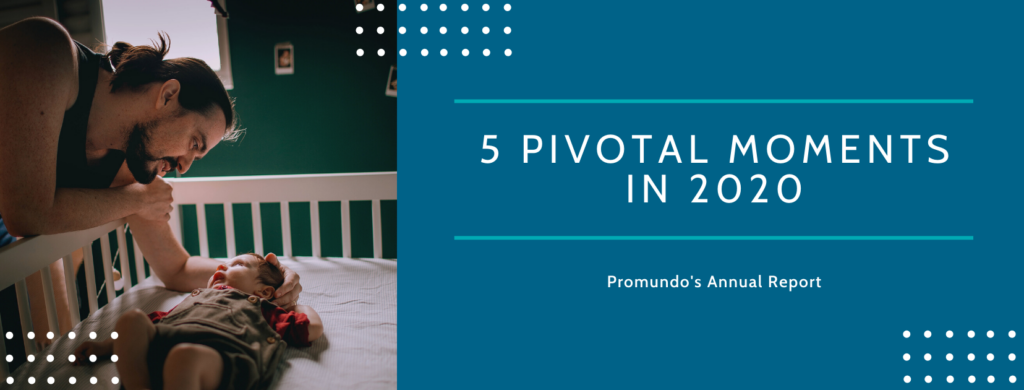Reflecting on 2020: Letter from the President & CEO
Dear colleague,
For over 20 years, Equimundo has worked to advance gender equality and create a world free from violence by engaging men and boys in partnership with women, girls, and individuals of all gender identities.
During Women’s History Month, we affirm our commitment to continue our feminist-aligned work globally. As an applied research organization, we build healthy, equitable masculinities and advance gender equality by working with individuals and communities while also targeting the institutions and power structures – such as schools, health systems, militaries – which shape and maintain gender inequalities. We also affirm our commitment to working in partnership: our work is carried out together with nearly 100 organizations in more than 55 countries worldwide.
In this Annual Report, we focus on how in the past year, we spoke truth to power; generated new research on masculinities; evaluated what works to engage men and boys for gender equality; worked with partners to shift norms and practices; supported new voices and perspectives; and convened for impact.
Looking forward, we continue the work. I invite you to keep in touch with us: follow us on Twitter and join our community on Facebook to be the first to receive our latest insights. Our 2021 forecast includes: a new edition of State of the World’s Fathers, findings from 10 years of the International Men and Gender Equality Survey, innovative research on how gaming and the culture surrounding it may impact the way we’re raising boys, and much more.
As we continue our work, we invite you to consider partnering with us by making a contribution. Together, we can move the needle on healthy masculinity and gender equality.
Five Pivotal Moments in 2020: Equimundo Impact
1. Starting Early to Promote Healthy, Equitable Masculinity with the Global Boyhood Initiative:
We launched the Global Boyhood Initiative (GBI) in October with the Kering Foundation in partnership with Plan International with the support of Gucci’s CHIME FOR CHANGE. This initiative equips adults with the tools and resources to raise, teach, and coach boys (aged 4-13) to share emotions in healthy ways, accept and connect with others, stand up and speak out against inequality, and break free from stereotypes. Focused on long-term systems change, the initiative aims to impact every level of the child’s environment – to support boys to be healthy, emotionally connected, and nonviolent; it ultimately aims to prevent violence and achieve gender equality.
In 2021, we will partner with Boys & Girls Clubs of America and also launch the initiative in France and the UK together with Cummins Powers Women, the Kering Foundation, and Gucci’s CHIME FOR CHANGE. See what The Things, Mashable, and Forbes are saying about our work, and follow @BoyhoodInitiative on Instagram to access additional interactive resources.
Resources for Healthy, Connected Boyhood:
- The State of America’s Boys: An Urgent Case for a More Connected Boyhood
- Staying-at-Home with our Sons: Fostering Healthy Masculinity in Challenging Times
- If He Can See It, Will He Be It? Representations of Masculinity in Boys’ Television
- Interactive Conversation Starters for Kids
2. Making the Case on why Healthy Masculinities and Caregiving Matter to Pandemic-Response:
During COVID-19, parents and caregivers and frontline workers have been heavily impacted, with shifts to their paid work, as well as home duties and responsibilities. To understand the complexities of this issue, with Oxfam, we produced Caring Under COVID-19: How the Pandemic Is – and Is Not Changing Unpaid Care and Domestic Work in the United States. The report presents research, examining the impact of COVID-19 on care, and highlighting the heavier burdens faced by people of color (57% of White respondents said that their daily domestic and care work had increased, while the rate was 71% among Black or African-American respondents, 74% among Hispanic or Latino/a respondents, and 79% among Asian respondents). The report underscored a “crisis of care”: an increase in and still-existing gendered distribution of care work which disadvantages women, leaving less time for rest and social connection, placing restrictions on mobility, and taking a heavier emotional toll. ReliefWeb and Scary Mommy highlight these and other research findings.
We launched this report alongside #HowICare, an awareness-raising and storytelling social media campaign focused on the importance of care in all of its forms, reaching more than 440 million people worldwide. Moving forward, we must value care work, prioritize paid leave, and craft policies which alleviate rather than exacerbate existing inequities.
3. Working with the Public Sector to Ensure Sustainability of High-Impact Programs:
With support from Wellspring, Saving Brains, and DfID WOW, Equimundo tested the institutionalization of Program P (Equimundo’s flagship approach to target fathers) within the health system in Rwanda together with partners RWAMREC, the Ministry of Health, and Rwanda Biomedical Center. Bandebereho (as Program P is called in Rwanda) has already proved to have high-impact, with 40% of fathers using less violence against a partner after having participated in the intervention (as compared to those who did not participate). The collaboration with the Rwandan Government will take these results national scale: Currently, more than 400 community health-workers have been trained in one district, and 3,300 parents are actively engaged in the program. Watch the BBC film that covered this program.
Additionally, In the Amazon region of Peru, with support from UNICEF, Equimundo began adapting our work with youth and young adults – Program H/M – to advance gender equality and prevent gender-based violence, with a focus on supporting positive sexual and reproductive health outcomes in partnership with the school system in collaboration with local, non-governmental organizations, as well as recreational and sports programs delivered by local and provincial governments.
4. Partnering with Workplaces to Advance Gender Equality and Men’s Caregiving:
Led by Dove Men+Care and Equimundo, The Parental Leave Corporate Task Force was established in 2019 to promote parental leave for fathers and all caregivers as an essential issue for corporate leadership, and as a critical part of advancing gender equality. In 2020, we published the report, Putting Fathers’ Care to Work, highlighting challenges to achieving this goal: Only 105 countries provide at least one day of guaranteed paternity leave; and even when this leave is available, men do not take what’s provided: fewer than 50% of fathers across six countries report taking their full amount of nationally-entitled leave. The report underscores that flexible, well-compensated leave policies can lead to: fathers shouldering their share of unpaid care work, better development outcomes for children, and more equal homes and communities. Forbes discussed the benefit of the Task Force in this article about steps employers can take to help fathers flourish. In October, the Parental Leave Corporate Task Force – which includes Bank of America, Deloitte, Facebook, Twitter, UNICEF (Technical Advisor), and Women Deliver – was recognized by The Holding Company and included on its 2020 Care 100 list, a first-of-its-kind list of the people doing the most to re-imagine and re-humanize our care system.
5. Disrupting the Cycle of Violence:
Exposure to violence in childhood can have severe physical, emotional, and mental health consequences and is intimately linked with men’s likelihood of perpetrating or experiencing intimate partner violence in adulthood. This connection between violence in childhood and violence in adulthood can be disrupted if children and adolescents are provided with quality, targeted interventions that meet their psychological and social support needs. Breaking the Cycle of Intergenerational Violence: The Promise of Psychosocial Interventions to Address Children’s Exposure to Violence, a position and advocacy paper produced by Equimundo, Sonke Gender Justice, and partners, presents psychosocial interventions that show promise in disrupting cycles of violence, supporting children’s health and well-being, and preventing future perpetration or experiences of violence. We are working with partners and governments to build this approach as a companion to our prevention work with boys and men, women and girls.

